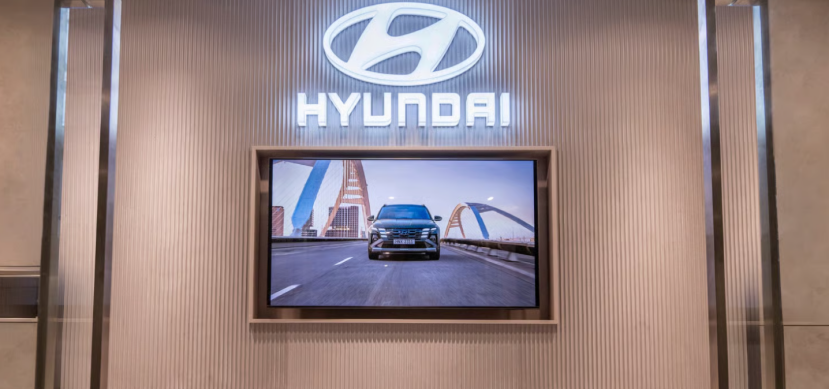On July 24, Hyundai Motor announced its second-quarter earnings for this year, showing a 7.3% year-on-year increase in revenue to 48.287 trillion won (approximately $35.26 billion), a record high, driven by strong sales of hybrid vehicles in North America. However, operating profit fell by 15.8% year-on-year to 3.602 trillion won, slightly above Bloomberg's median forecast of 3.5 trillion won, while net profit decreased by 22.1% to 3.25 trillion won. In a statement, Hyundai noted, 'Increased incentives due to intensified industry competition and the impact of the global trade environment have put pressure on our operating profit.' During the earnings call, Hyundai revealed that U.S. tariff policies reduced operating profit by 828 billion won in Q2. Seung Jo Lee, Hyundai's Executive Vice President and Chief Financial Officer, indicated that while strong sales of hybrid and electric vehicles in North America drove record quarterly revenue, the tariff policies would have a more significant impact starting in Q3. Regarding its strategy in the U.S. market, Lee stated that Hyundai is working to enhance both its market share and profitability, but the company has not yet made a final decision on adjusting vehicle prices in the U.S. market, closely monitoring market dynamics. Additionally, Hyundai reported global sales of 1,065,836 vehicles in Q2, a slight increase of 0.8% year-on-year, with sales outside of Korea rising by 0.7% to 877,296 vehicles, primarily due to strong demand in North America (up 3.3% year-on-year). This growth was largely attributed to core models such as the TUCSON and SANTA FE SUVs, as well as the ELANTRA sedan (known as 'Avante' in some markets). In the domestic market, Hyundai's Q2 sales increased by 1.5% year-on-year to 188,540 vehicles, benefiting from the launch of new models including the PALISADE SUV and IONIQ 9 SUV. Notably, global sales of Hyundai’s electrified models surged 36.4% year-on-year to 262,126 units in Q2, with hybrid models achieving a record high of 168,703 units, up 38.5% year-on-year; significant growth in electric vehicle sales in Europe also contributed to overall sales increases. The release of this earnings report coincides with high-level South Korean officials visiting Washington for renewed negotiations. South Korea is currently in talks with the U.S. to lower tariff rates, but as the August 1 deadline approaches, no agreement has been reached. Under the latest tariff proposal, the U.S. plans to raise the tariff rate on South Korean goods from the current 10% to 25%, while maintaining existing tariffs on specific sectors such as imported automobiles, steel, and aluminum. As an important ally of the U.S. in the Asia-Pacific region and a critical base for industries such as automotive, semiconductors, and batteries, South Korea has proposed a 'mutually beneficial' manufacturing partnership initiative aimed at strengthening the industrial supply chains between the two countries. The South Korean side emphasized that any final agreement must include terms for the elimination or limitation of tariffs on products like automobiles and steel. Additionally, it is noteworthy that just a day before this earnings report, the U.S. and Japan reached a trade agreement, reportedly reducing tariffs on Japanese cars to 15%, a move that could weaken Hyundai's price competitiveness in the U.S. market.
Hyundai Reports Strong Q2 Earnings Despite Tariff Impact

Share this post on: